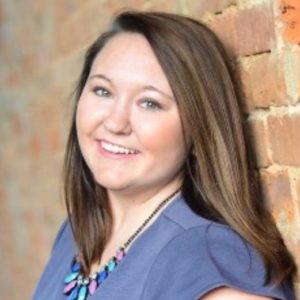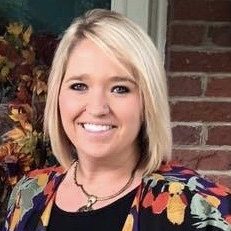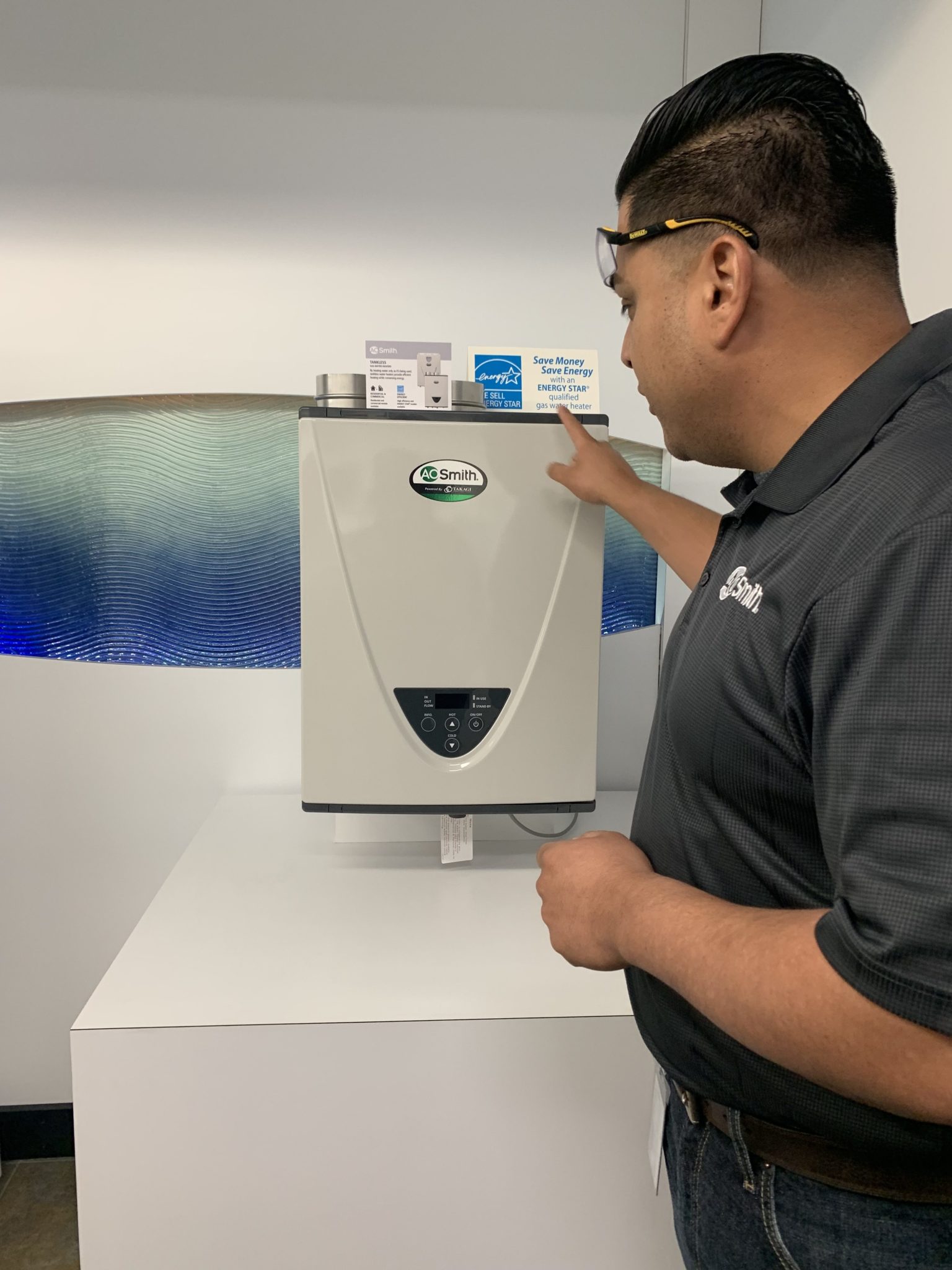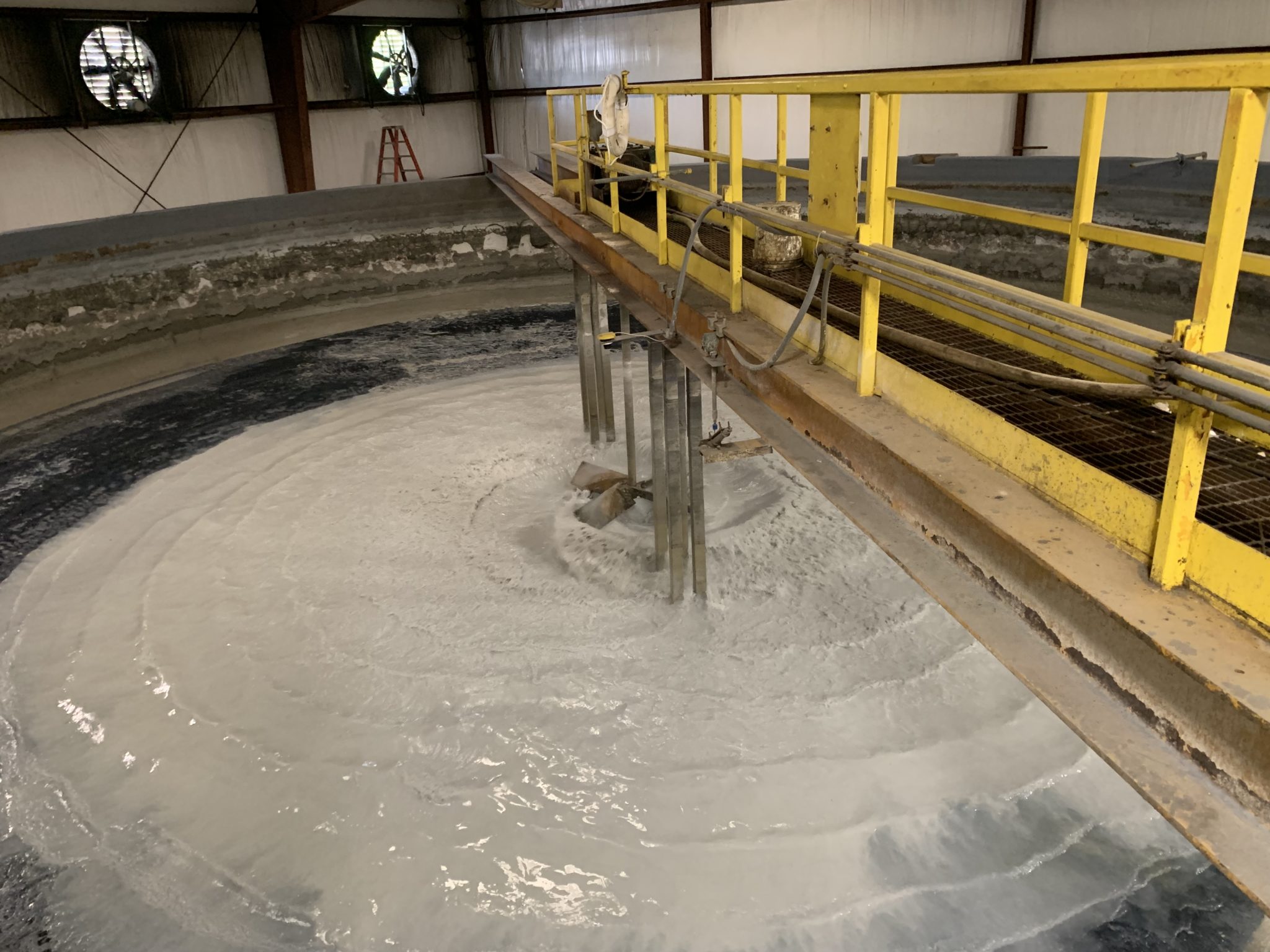STEM educators know it can be difficult showing students how classroom learning can lead to real-world jobs. Professionals with STEM-related careers might not be available for school visits. And taking a whole class on a factory tour is not always feasible. But what if the teacher takes the factory tour, learning about and documenting the job opportunities, and carries that knowledge back to the classroom? That’s the goal of the Manufacturing and Engineering Externship Program (MEEP).
Funded by a grant from the Navy’s Office of Naval Research, MEEP offers paid summer externships to K-12 educators who spend three to five days at a local STEM-based industry. The educators then develop a curriculum unit exposing their students to that industry’s skills and career opportunities. MEEP is coming to Ohio, after its success in Tennessee.
Interested in applying to the program? Teachers can sign up here. Could your business host an educator? Register here.
To find out more about the program, we contacted two educators who participated – Kristin McQueen, a K-4 STEM teacher, and Carlee Darnell, a third-grade teacher. Both work at Ashland City Elementary School in Ashland City, Tennessee:
Q: Tell us about your backgrounds in education and your current roles at Ashland City Elementary School (ACES).
 Kristin: I graduated from Tennessee Tech University in 2012 with a bachelor’s degree in elementary education K-6. I started my teaching career in the 2013-2014 school year as a third-grade math/science teacher. From there, I transitioned into Cheatham County as a second-grade teacher at ACES for 2014-2015.
Kristin: I graduated from Tennessee Tech University in 2012 with a bachelor’s degree in elementary education K-6. I started my teaching career in the 2013-2014 school year as a third-grade math/science teacher. From there, I transitioned into Cheatham County as a second-grade teacher at ACES for 2014-2015.
During that school year, my principal approached me with the idea of starting a STEM program knowing I came from a math/science background. At the start of the 2015-2016 school year, I became the STEM teacher at ACES and officially launched the STEM program as a part of the “specials” rotation in which every student has the opportunity to visit the STEM lab.
I received my master’s degree in 2016 from the University of Tennessee-Chattanooga in curriculum and instruction. I currently serve as the STEM teacher at ACES but handle many other leadership roles: grade level chair, STEM chair, leadership team and safety chair.
These leadership roles have led me back to graduate school yet again, and I am currently working on my education specialist degree in administrative leadership and plan to graduate in May 2020.
 Carlee: I graduated from Austin Peay State University in Tennessee with a bachelor’s degree in K-6 elementary education. I then continued my education at Carson-Newman University in Tennessee and received my master’s degree as a reading specialist.
Carlee: I graduated from Austin Peay State University in Tennessee with a bachelor’s degree in K-6 elementary education. I then continued my education at Carson-Newman University in Tennessee and received my master’s degree as a reading specialist.
I have taught at ACES since December 2013, and I am currently teaching third grade.
Q: What is your school’s educational philosophy and how does your work help the school further that aim?
A: Following are the ACES’ Vision Statement and Mission Statement:
Vision Statement: At Ashland City Elementary School, we provide rigorous learning experiences that challenge individuals and cultivate a love for learning for all students, faculty and staff.
Mission Statement: Ashland City Elementary School strives to recognize the individual needs of students and to provide a challenging, diverse curriculum encompassing 21st century skills. It is our desire that all students will master their academic skills, be well-developed decision makers and be valued contributors to their future community.
Kristin: STEM is an essential attribute that helps shape our students into future innovators. I don’t just teach STEM, I facilitate STEM. I watch the learning unfold through the students. They are the ones imagining, collaborating, innovating and inspiring me.
STEM gives our students opportunities they might never have gotten to experience. They participate in tending our school garden, building VEX robots, operating drones from iPads, learning from real-world professionals and solving real-world problems.
It is my hope that when they leave my class, they are ready to enter the future workforce with newly developed 21st century skills and a wealth of STEM career exposure.
Carlee: By completing this externship we were able to get a better insight on how some 21st century careers are using STEAM in their everyday skills. We are able to use the knowledge that we learned from that experience to teach our students rigorous ways that STEAM could be implemented in their future.
Q: How did you hear about MEEP? Why did you decide to take part, and how did you think it would make you better educators?
Kristin: I have been partnering with the Tennessee STEM Innovation Network (TSIN) since I started the STEM program at ACES. I have participated in the Tennessee Rural STEM Collaborative, STEM-Micro Credentials and Statewide Design Challenge, and I am currently a part of the Innovative Leaders Institute cohort for the 2019-2020 school year. So I am pretty well-versed in TSIN opportunities!
Naturally, when the MEEP opportunity arose, I was immediately intrigued knowing that there was already a willing manufacturing partner right across the street from ACES. I am continually looking for better ways to provide work-based learning opportunities for my students because the elementary age can pose a little struggle with this because of safety concerns in most manufacturing facilities. I thought: If I can’t take my students there, I can take myself there!
I knew that this nearby manufacturer, A.O. Smith Corp., funded some of our projects, and I also knew that it produced hot water heaters. I quickly assessed that I could fit their product into Tennessee state education standards and design a lesson.
Finally, I wanted to participate not only to show my students that I am continually learning as an educator but also to open their eyes into a real-world manufacturing career and make connections to our local community.
Carlee: I heard about the MEEP program through an email that was sent to our entire faculty. I was able to collaborate with a co-worker, and we completed the program together.
I took part in this program to help broaden my understanding of how beneficial STEAM is to young students and how to help them to make a connection between early education and life-long careers.
Q: How long was the externship and what did you do on-site?

Kristin: We partnered with A.O. Smith Corp., the leading manufacturer of hot water heaters in the United States and globally. The company recently celebrated 145 years of service.
We spent three days there exploring the plant and learning from company experts. While on site, we were taken through a history of the company and how it started and the different focus areas throughout the years.
We then went through a rigorous safety protocol before entering the main floor. While on the main floor we were given a tour of every station and walked through each process in the making of a water heater. We also met with the company’s their human resource chair, and we learned the qualities the company looks for when hiring employees. This was beneficial because I can tell my students the characteristics the company looks for when hiring.
We also met with the environmental engineer who gave us a tour of A.O. Smith’s water treatment plant and how it works. Later, we met with the robotics engineering team who let us play around with some of their robotics. Portions of the assembly line are operated by robots, so it was really cool to get to code and watch it work.
We wrapped up our time meeting with the research team, who tests water heaters at different temperatures over different period of time. A.O. Smith truly invests in their products and can back it up with research and data.
Carlee: We worked with a local business, A.O. Smith, for three days. During those eight-hour days we toured the plant, talked with many of the employees and saw first-hand how much goes into this factory that makes water heaters.
Q: What did you learn during this externship that would make you a better educator? Did anything surprise you?
Kristin: Honestly, I couldn’t believe how many steps went into making a single water heater. There were so many different stations, from sanitizing the lids, to putting them through a furnace, all the way to applying every sticker that you see on a water heater, it blew my mind.
I was surprised to see how environmentally friendly the company was. A.O. Smith’s on-site water treatment plant filters the water used in manufacturing and returns it back to the plant. It also has an environmental engineer who conducts regular safety checks.
As educators we want to push our students to go to college and pursue their biggest dreams, but this experience taught me that STEM jobs come in different sizes. Some you might not need a college degree for and still earn a decent living. I think this humbled me to teach my students that STEM careers will blossom no matter which path you choose – technical or college. With this mindset, it gives every student hope, even the struggling student, that he or she will amount to something bigger and better moving through life.
Carlee: This externship made me, as an educator, get a better understanding of how many careers use STEAM in their everyday skills.
Whether it is related to coding, robotics or even engineering, many local businesses are using many of the skills that are taught through STEAM to complete their daily tasks.
Q: How did you use the externship experience in your classroom?
Kristin: I choose to focus on the company’s water treatment plant and turn it into a real-world problem for my students. I created a scenario that our local river had been contaminated, and they needed to design and build a water filtration system to clean up the dirty water.
The students researched the issue of dirty water and how some countries don’t have access to clean water. The students collected samples of different types of water (pond, rain and filtered) and tested the pH levels of each. After that, they began designing their water filtration system using recycled products.
Q: What was the reaction of your students?
Kristin: After telling my students about my experience at A.O. Smith, they were able to draw real connections to what happens across the street from their school. They were able to share that they have water heaters in their homes and with the A.O. Smith sticker on the side.
I showed them pictures and live video feeds from my time there, and they were truly mesmerized. The water treatment plant pictures were a big hit along with me getting to play with robotics! We have VEX robots in the classroom, so students were able to see that robotics engineering can be a real career not just something they read about, because I was able to provide them with an authentic experience.
After sharing my experience, the STEM challenge was more meaningful to students because they had a connection to the cause.
Q: What advice would you give other educators who might want to try this externship? And what would you tell those running the externship about how it could be improved?
Kristin: The externship is a tremendous opportunity for educators, especially elementary teachers. I mentioned how work-based learning opportunities can be limited, but this helps break down that barrier and allows teachers to be the ones who are learning.
Our students are continually growing and learning, and this expectation is the same for teachers. We need to grow and adapt with the changes.
STEM careers are a huge innovative push in Tennessee, and it is our job as educators to spread the knowledge to our students and get them prepared to enter the workforce.
The MEEP program offered a unique opportunity to allow me to become an engineer, the experience made me feel like a kid! I loved getting to wear the lenses of a student. I now have a personal connection to A.O. Smith and can use the experience with future students.
No matter where the MEEP program leads you, the manufacturing connection will be authentic, and there will be something you can bring back to your students.
Carlee: If other educators were considering this externship I would highly recommend it. Not many teachers understand how STEAM can help students relate to real world careers. Being able to go “behind the scenes” of any factory will help to open your eyes on ways that you can relate your teaching to these various careers.
